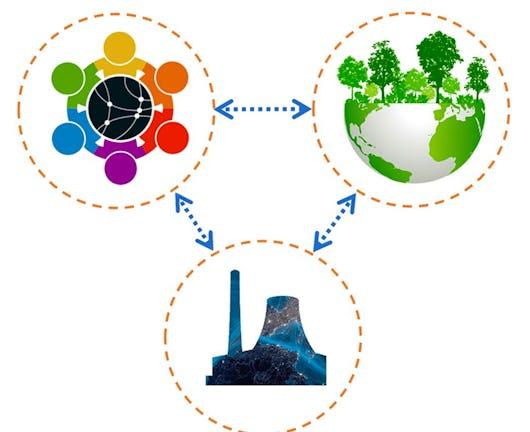MOOC List is learner-supported. When you buy through links on our site, we may earn an affiliate commission.

MOOC List is learner-supported. When you buy through links on our site, we may earn an affiliate commission.
What you'll learn
- Define resilience and explain the meaning of the built environment.
- Outline a holistic approach to resilience of critical infrastructure systems.
- Apply resilience and crisis management frameworks to complex scenarios.
- Interpret how ethics may enhance or diminish adaptive capacity.
Syllabus
Resilience Concepts and Definitions
Welcome to the first course of the Resilience & Leadership series. We will get started right away by defining key concepts that will be touched upon throughout this course: resilience, resilience engineering, the built environment, and critical infrastructure. After, you will see examples of the four cornerstones of resilience that can characterize the response of a complex system to unanticipated disruptions. You will consider multiple perspectives of resilience that present an alternative to traditional risk analysis. Then, we'll discuss a holistic approach to resilience using an Integral framework. The framework is an important tool that will be referenced throughout this specialization, and applies directly to Resilience Engineering and Leadership in Crisis. Let's get started!
Resilience Engineering, Crisis Management, & Critical Infrastructure Frameworks
This module introduces more resilience concepts, tools, and frameworks. First, we’ll examine an expansion of Hollnagel’s work with four socio-technical processes to describe the resilience of a complex system. You will be introduced to the definition of a crisis, and a framework for crisis management as a strategic process. The framework covers landscape survey, strategic planning, crisis management, and organizational learning from both internal and external perspectives. Finally, we’ll continue our review of critical infrastructure resilience policy framework established by the DHS (Department of Homeland Security).
Resilience of Complex Systems, Disaster Events, & Threat Identification
Sully Sullenberger's landing on the Hudson River is an example of resilience during a crisis and can teach us many things. In this module, we’ll discuss the event and how a ‘human-in-the-loop’ can contribute adaptive capacity amid catastrophic system failure. We’ll go on to examine the crisis management landscape and normal accident theory in relation to known and unknown threats, hazards, and transboundary impacts. You'll compare organizational and societal crises with natural and man-made disasters. Finally, a DHS protocol for identifying and assessing threats will be introduced.
Ethics, Crises, & Disaster Events
This module explores business ethics in relation to crisis events. We will discuss the role of ethics in crisis leadership and examine a mini-case of the Hawk's Nest Tunnel Disaster of the 1930s. The module presents ethics in a context of the crisis management framework and describes how organizational learning can affect policy. One assignment for this module provides an opportunity to reflect on lessons learned from the Deepwater Horizon event.
Organizational Crisis, Adaptive Systems, & Human Resilience
In this module, we’ll examine some of the patterns that emerge when adaptive (complex) systems fail. Patterns of maladaptation can also be observed like decompensation, working at cross-purposes, or getting stuck in outdated behaviors. We’ll also look at sources of organizational crisis in more detail. Different types of internal and external forces can impact the safety, security, and resilience of an organization. Other considerations include industry and organizational life-cycle crises. Finally, we’ll talk about human resilience and development in relation to critical infrastructure resilience.
MOOC List is learner-supported. When you buy through links on our site, we may earn an affiliate commission.
MOOC List is learner-supported. When you buy through links on our site, we may earn an affiliate commission.
